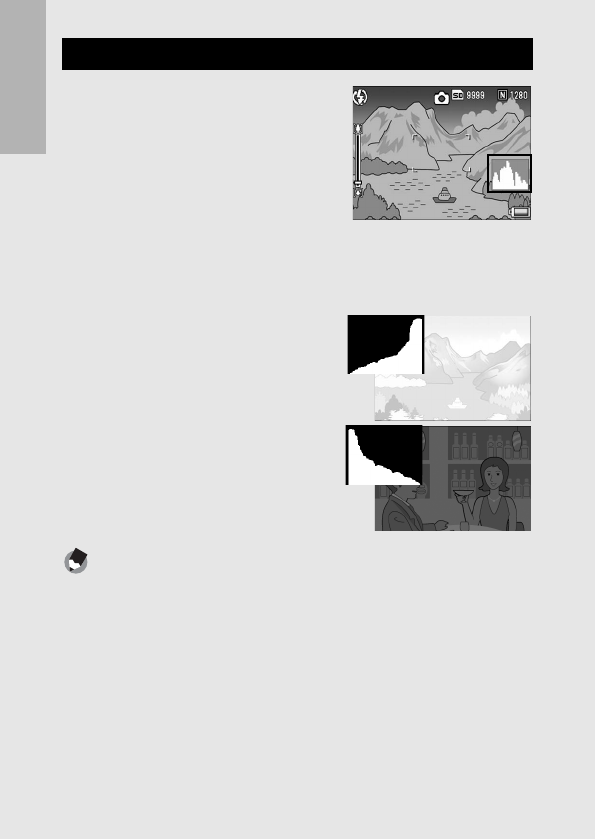
70
If you are using the camera for the first time, read this section.
When Histogram is on, a histogram
appears in the lower right corner on the
picture display. A histogram is a graph
indicating the number of pixels on the
vertical axis and the brightness on the
horizontal axis (from left to right,
shadows (dark areas), midtones, and
highlights (bright areas)).
By using the histogram, you can determine the brightness of an
image without being affected by the brightness around the picture
display. This also helps you correct for areas that are overly bright
or dark.
If the histogram has only peaks on the
right side without anything else, this
picture is over-exposed with too many
pixels only for highlight sections.
If the histogram has only peaks on the
left side without anything else, this
picture is under-exposed with too
many pixels only for shadow sections.
Correct the exposure to an appropriate
level.
Note ---------------------------------------------------------------------------------------------------
• The histogram displayed on the picture display is for reference only.
• After shooting, you can correct the brightness and contrast of the image by adjusting
the histogram. (GP.169)
• Depending on the shooting conditions (use of the flash, dark surrounding light, etc.),
the exposure level indicated in the histogram may not correspond to the brightness
of the shot image.
• Exposure compensation has its limitation. It does not necessarily achieve the best
possible result.
• A histogram with peaks in the center may not necessarily provide the best result to
suit your particular requirements.
For example, an adjustment is required if you want to underexpose or overexpose
the image.
• For information on how to correct the exposure compensation, see P.138.
Histogram


















